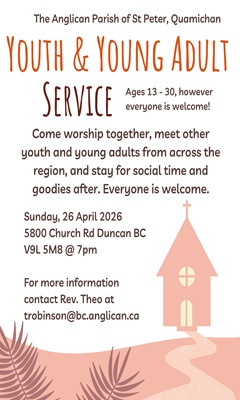A while ago, I was talking with a senior parishioner. She’s involved in three ministries in the church, often drives others to appointments, and has a group of dear friends she sees many times a week. But as we talked, she told me, “I love my life during the day, but when I go home at night, I’m achingly lonely.”
In that one conversation, everything I thought I knew about loneliness was challenged. All the things I thought a lonely person needed to do to reduce their loneliness, she was already doing. That got me thinking about chronic loneliness and what a church might do to help. It led me to undertake a doctorate in ministry degree that focused on this question.
Everyone experiences loneliness at some time in their lives. In the short term, it is uncomfortable, but not life threatening. But when loneliness becomes chronic, it can have serious effects on the individual’s psychological, physical and spiritual well-being.
More than one recent study has shown that chronic loneliness has a greater correlation with morbidity and early death than smoking 15 cigarettes a day. It affects as much as 30 per cent of the population and inflicts real physical pain, interferes with the immune system, is linked with depression and suicide and can make a person feel separated from God.
A church’s usual response to loneliness is to visit. And while visiting is a good thing, studies tell us that its salutary impact on the chronically lonely lasts as little as two days before they slip back into deep loneliness. When we consider that there are only a finite number of hours we can offer in visits and the short duration of its impact, it becomes clear that visiting is not the complete answer to addressing loneliness. We need to find a different way of visiting; we need to develop new tools and skills for our pastoral care teams so that our visits are more effective in managing the loneliness felt by so many of our parishioners.
For many years, undertaking practices of gratitude has been shown to increase happiness, with a correlated increase in various measures of mental and physical health, but until recently, no study has been done to explore the relationship between practices of gratitude and feelings of loneliness. In my doctoral studies, I wanted to find additional tools for us to combat the effects of chronic loneliness.
My research team was the pastoral care team of my parish. Members were paired with seniors in our parish, and the pairs met six times over 12 weeks. At each meeting, they prayed, read scripture and tried out new gratitude practices.
Different participants found different gratitude practices worked better for them, but all found at least one practice that they appreciated and chose to continue to use. The practices we explored included journaling, naming three things for which we’re grateful and simply saying “thank you,” as well as a number of other practices. None took a great deal of time out of a person’s day, and all could be carried on individually after the study. At the start and end of the 12 weeks, the participants were tested using peer-reviewed measurement scales for gratitude and loneliness. The results were dramatic: 100 per cent of the participants had increased levels of gratitude and reduced levels of loneliness.
Jesus calls us to love one another as he has loved us. If we accept that loneliness is a serious issue, to be truly loving we need to find new ways to help those who suffer from it. Sharing gratitude practices with our parishioners is one more tool in our pastoral care tool box to do just that.




